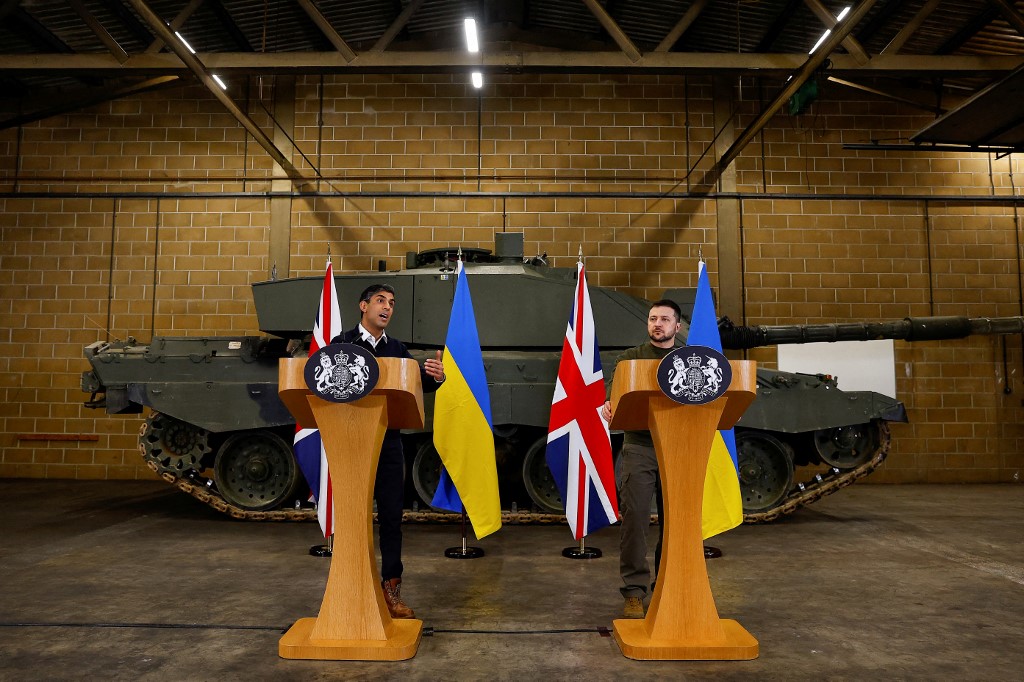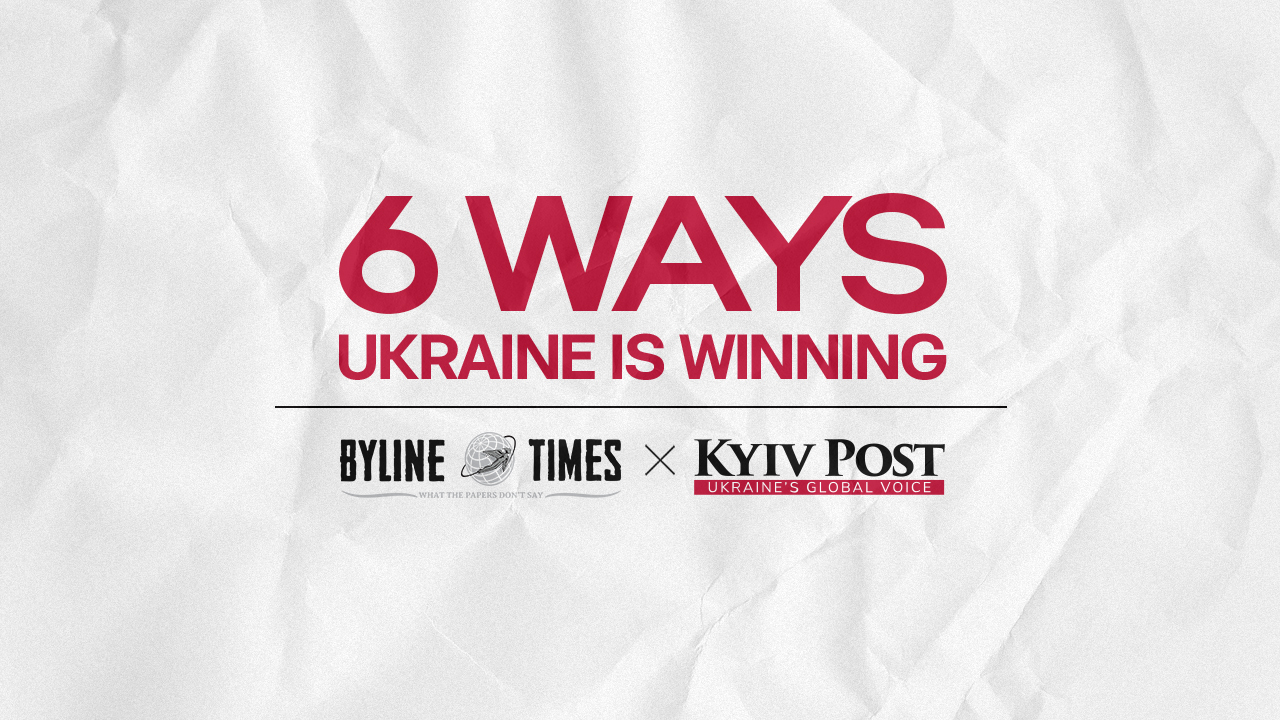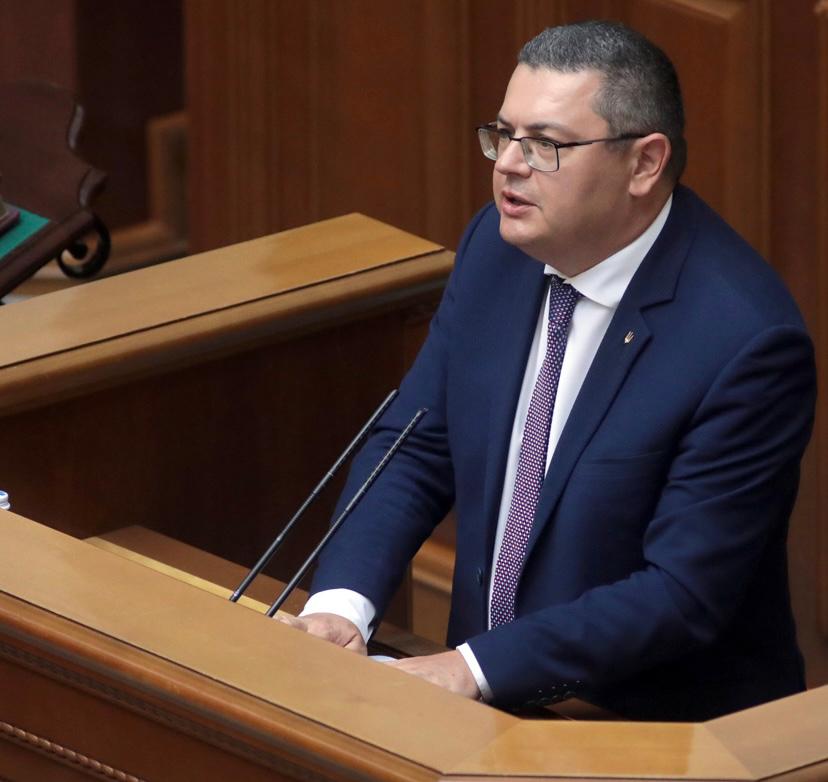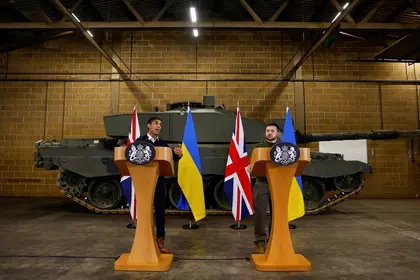'Six Ways Ukraine is Winning' is a collaboration between Kyiv Post and Byline Times, highlighting Ukrainian ingenuity, resilience and determination in the face of one year of Russia's full-scale invasion.
Amid the carnage and confusion of the first few hours of Russia’s full-scale invasion of Ukraine, on a Zoom call between Ukrainian MPs and their counterparts in the U.K., a discussion was taking place that would solidify and set the tone for relations between the two countries to this day.
JOIN US ON TELEGRAM
Follow our coverage of the war on the @Kyivpost_official.
“They offered sanctuary to our families,” Ukrainian MP and Head of the Committee on Foreign Policy, Oleksandr Merezhko, tells Kyiv Post.
“Our British colleagues offered to take our families. It was such a nice gesture that they offered to look after our children and spouses.
“I didn't take them up on it but just the fact they offered it, it meant a lot to me.”
For Merezhko, even before the full-scale invasion of Ukraine, Britain stood out in diplomatic circles in which he worked as not only a staunch supporter of Ukraine, but also as a harsh critic of Russia.
Merezhko is a member of the Parliamentary Assembly of the Council of Europe, a deliberative body and the driving force of the Council of Europe (PACE), comprised of 306 members from 46 countries.
It has achieved a number of successes since its creation in 1949, particularly on issues of human rights. It played a key role in ending the death penalty in Europe, provided a blueprint for the European Convention on Human Rights and has produced numerous reports exposing human rights violations in member states.

Polish PM Says Ukraine Peace Talks Could Start This Winter
It also, until very recently, had a 47th member country – Russia – whose track record on human rights, assassinations, and events like the downing of flight MH17 over Ukraine meant its membership of PACE has been a frequent source of fierce debate among member countries.
Members of PACE can join one of five political groupings and Merezkho made his choice based on their attitude to Russia.
“More than a year ago I joined the group of the European Conservatives which is dominated by British Conservatives, and this was the major reason why I joined it,” he says.
“The PACE group has been the staunchest of supporters of Ukraine and has always been critical of Russia.”

Ukraine's President Volodymyr Zelensky (R) and Britain's Prime Minister Rishi Sunak hold a press conference at a military facility in Lulworth, Dorset in southern England on Feb. 8. PHOTO: AFP
Moscow’s illegal annexation of Crimea in 2014 sparked a years-long tussle between Russia and PACE, and although harsh words and accusations were thrown around, the Kremlin’s delegates were not expelled.
“The dominant mood before Feb. 24 2022, was one of so-called 'dialogue' with Russia,” says Merezhko. “To me it was a euphemism for the appeasement of the aggressor.”
After Feb. 24 “everything changed”, he adds, and PACE finally decided to expel the Russian delegation.
“I was shocked to tell you the truth,” Merezhko says. “The same people, leaders of political groups like the German SDP etc. – with the exception of the Conservatives – they were in favor of bringing Russia back and having a 'dialogue' and all of a sudden they voted for expulsion.”
For Merezkho, it was a bitter-sweet moment: “On the one hand it was of course excellent that we finally managed to expel Russia but it should have been done long ago.
“It was just too late. I felt satisfaction that it had happened but when you see that the tragedy has already started and how it is unfolding, to me it was a weird feeling of bitterness.”

The Boris Effect
Despite his frustrations, the episode reinforced his belief that Britain would stand by Ukraine. Leading the diplomatic charge was of course then-Prime Minister Boris Johnson, who made a number of visits to Kyiv and regularly phoned President Volodymyr Zelensky.
While his true motives may have been far from altruistic – an iNews report noted that these visits and calls almost always coincided with, and provided news coverage that distracted from, domestic crises that Johnson was facing – in Ukraine, this was never a concern and remains somewhat of a hero in the country to this day.
So it was a blow for Ukrainians when he stepped down as PM and was eventually replaced by Rishi Sunak after a forgettable stint by Liz Truss.
“When he had to step down it was a disappointment and there was some uneasiness about who would come next,” says Merezhko.
“Rishi Sunak hadn't dealt with foreign affairs as much so I had a little apprehension that he might concentrate more on the internal problems of the U.K. and pay less attention than Johnson to Ukraine and to our struggle against Russian aggression.”

Oleksandr Merezhko
Since Johnson stepped down, the U.K. has pledged to at least match the £2.3bn in military assistance it provided during the first year of the conflict through the coming year.
Sunak visited Kyiv himself in November and hosted President Zelensky in the U.K. on what was only his second trip outside of Ukraine since the start of the full-scale invasion, announcing among other things, a training program for Ukrainian pilots.
“I've seen that my apprehensions were misplaced and have not materialized,” says Merezhko.
The nature of war means the relationships forged between politicians in Kyiv and London over the last year have transcended the norm and turned into something much deeper than that which would normally occur during peacetime.
“It's absolutely given me strength,” says Merezhko. “When Tom [Tughenadt, Conservative MP] messaged me during the early hours of the full-scale invasion, it charged my strength and gave me moral support.
“Each such letter, message or phone call was so appreciated, especially during the first month when the situation was not clear, and I thought that we were under siege and might be cut off completely.
“I'll remember each message my entire life.”
Merezhko has yet to visit the U.K. but plans to do so after a Ukrainian victory. Asked where he would like to visit, he immediately says the Palace of Westminster “because it is referred to the mother of all parliaments.”
“I've been to various parliaments around the world, but I've yet to see the mother,” he adds.
“I'm sort of collecting visits to parliaments because they help me to make our parliament better.
You can also highlight the text and press Ctrl + Enter






